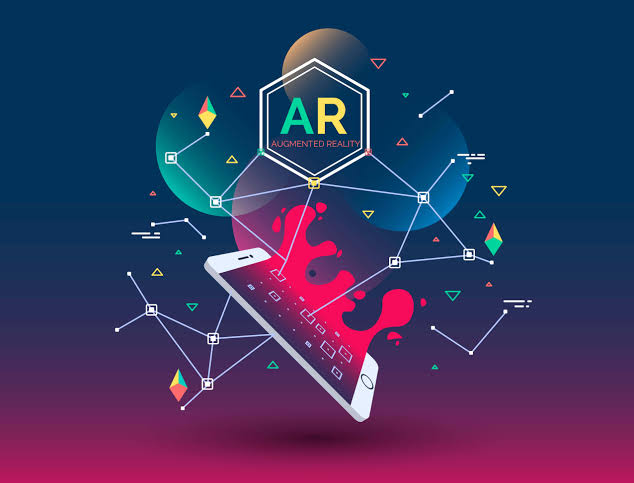Augmented reality (AR) has swiftly transitioned from futuristic concept to practical tool for businesses across various industries. By overlaying digital information onto the physical world AR enhances the way companies interact with customers. It also helps in training employees and streamlining operations. This technology has the potential to transform business practices. It does so by providing immersive and interactive experiences. Here, we explore the top 10 augmented reality software solutions. These solutions are driving innovation and efficiency in the business world.
1. Vuforia
Vuforia is one of the most widely used AR platforms. It is known for its powerful capabilities and ease of integration. Developed by PTC Vuforia allows businesses to create augmented reality applications. These applications work for both mobile devices and smart glasses. Its robust features include 3D object recognition, image tracking and user-defined targets. This makes it versatile for various business applications such as product visualization training and maintenance. Vuforia also supports Unity. Thus enabling developers to build high-quality AR experiences with ease.
2. ARKit
ARKit, developed by Apple, is a leading AR framework for iOS devices. It leverages the advanced hardware and software capabilities of Apple products to deliver high-fidelity augmented reality experiences. Businesses can use ARKit to create interactive applications that enhance customer engagement, provide virtual product demonstrations, and improve training programs. With features like motion tracking, environmental understanding, and light estimation, ARKit ensures that AR content blends seamlessly with the real world.
3. ARCore
ARCore, Google's AR platform, allows businesses to develop augmented reality applications for Android devices. Similar to ARKit, ARCore provides essential tools for motion tracking, environmental understanding, and light estimation. This platform is ideal for businesses looking to reach a broad audience, given the widespread use of Android devices. ARCore supports various use cases, including retail, real estate, and education, by enabling interactive and immersive experiences that enhance user engagement.
4. Unity
Unity is a popular game development platform that also excels in creating augmented reality applications. Its compatibility with both ARKit and ARCore makes it a versatile choice for businesses targeting multiple platforms. Unity's real-time 3D engine allows for the development of high-quality AR experiences with realistic graphics and physics. Businesses can use Unity to build applications for training simulations, product visualization, and interactive marketing campaigns, providing a rich and engaging user experience.
5. Blippar
Blippar is an AR creation and publishing platform designed for businesses looking to enhance their marketing and advertising efforts. It offers an intuitive drag-and-drop interface, making it accessible to users with varying levels of technical expertise. Blippar's features include image recognition, object tracking, and augmented reality portals, which can be used to create interactive advertisements, product launches, and branded experiences. By integrating Blippar into their marketing strategies, businesses can increase customer engagement and brand awareness.
6. ZapWorks
ZapWorks, developed by Zappar, is a comprehensive AR platform that caters to both beginners and advanced developers. It offers a suite of tools for creating, managing, and analyzing AR experiences. ZapWorks supports various AR content types, including image recognition, face tracking, and world tracking, making it suitable for diverse business applications. Companies can use ZapWorks to create interactive training programs, product demonstrations, and immersive marketing campaigns that capture the attention of their target audience.
7. Wikitude
Wikitude is a versatile AR platform that provides a range of features for developing augmented reality applications. Its SDK supports image recognition, 3D model rendering, and geolocation-based AR, making it suitable for a wide array of business use cases. Wikitude's cloud recognition service enables businesses to manage large-scale AR projects, ensuring smooth performance and scalability. Whether for retail, tourism, or industrial applications, Wikitude offers the tools necessary to create engaging and functional AR experiences.
8. Augment
Augment is an AR platform focused on enhancing the retail and e-commerce experience. It allows businesses to create virtual product try-ons, interactive catalogs, and 3D product visualizations. Augment's features include real-time tracking, offline mode, and integration with various e-commerce platforms, making it a valuable tool for boosting online sales and reducing return rates. By providing customers with a realistic view of products in their environment, Augment helps businesses increase conversion rates and customer satisfaction.
9. Lens Studio
Lens Studio, developed by Snap Inc., is an AR creation tool designed for building interactive lenses for Snapchat. While primarily used for social media marketing, Lens Studio offers powerful features that businesses can leverage for various purposes. Its capabilities include face tracking, hand tracking, and 3D model import, enabling the creation of engaging AR experiences that resonate with a younger audience. Businesses can use Lens Studio to develop branded filters and lenses that enhance their social media presence and engage with customers in a fun and interactive way.
10. Microsoft HoloLens
Microsoft HoloLens is a mixed reality headset that combines augmented reality with virtual reality, offering a unique and immersive experience. The HoloLens platform is designed for enterprise use, providing powerful tools for remote collaboration, training, and data visualization. Businesses can develop custom applications for HoloLens using the Windows Mixed Reality platform, taking advantage of features like spatial mapping, gesture recognition, and holographic rendering. HoloLens is particularly valuable for industries such as manufacturing, healthcare, and architecture, where spatial awareness and hands-free operation are crucial.
Conclusion
Augmented reality is transforming the way businesses operate, offering new opportunities for engagement, efficiency, and innovation. The top 10 AR software solutions listed above provide a range of tools and features that cater to various business needs, from marketing and retail to training and industrial applications. By integrating AR into their operations, businesses can create immersive experiences that captivate their audience, streamline processes, and drive growth. As AR technology continues to evolve, its potential to revolutionize business practices will only expand, making it an essential tool for forward-thinking companies.
